In the modern world of hectic activities, being able to achieve emotional balance can be a luxury sometimes, but it is one of the most important elements of the happy life. Stress, duties, and expectations are continuous and we are busy all the time with numerous notifications, deadlines, and expectations. We may feel nervous, irritable, or disoriented after this state of continuous mental overload.
Emotional balance is not merely about the need to remain positive but rather to remain balanced between your mind and body even in the state of anarchy. Up-to-date neuroscience and mindfulness studies indicate that calmness is not merely a state of mind, but it is a skill that can be scientifically measured and trained.
It has been more accessible than ever with the help of such tools as online therapy platforms and virtual therapy services. No longer do you have to go to a meditation retreat or a therapist to get emotionally well, but now you can do it with your fingertips. Emotional balance is not merely a state of mind but a scientifically proven practice, which any person can master.
Learning about Emotional Balance
Emotional balance states the possibility to identify, comprehend, and regulate emotions. It does not imply escaping tough emotions; it only implies being stable and calm whenever life throws a tough challenge to you. Emotions When you are emotionally balanced, you will be able to respond in a thoughtful way, as opposed to being reactive.
Scientifically, the limbic system controls our moods and memory, and it is the system that manages our feelings. The amygdala triggers the fight-or-flight response when we encounter stress, and so our system is overwhelmed with stress hormones. Nonetheless, by practicing calming activities like breathing or being mindful, the prefrontal cortex (the rational part of the brain) becomes the dominant component, and thus, we are able to control our responses better.
The repression of emotions may be counterproductive—emotions that are not dealt with are likely to re-emerge as anxiousness, burnout, or even physical disease. Instead, emotional regulation is a process when one recognizes emotions and their causes and is aware of them. It is an art that can be refined through a series of assistance with proper instructions, something that the new virtual therapy services are now trained in.
The Science Behind Calmness
And calm is more than psychological; it is physiological. The autonomic nervous system consists of the two major branches, the sympathetic (stress response) and the parasympathetic (relaxation). To balance the emotions, learning to activate the parasympathetic system to achieve the state of calmness is necessary.
By making a habit of mindfulness, meditation, or controlled breathing, your body produces less cortisol, the main stress hormone, and more serotonin, the neurotransmitter of a good mood and well-being. Scientific studies published in the neuroscience journals have proved that the regular practice of meditation and relaxation methods lowers the activity of the amygdala; in other words, your brain physically becomes calmer with time.
This phenomenon is associated with neuroplasticity, the capability of the brain to reorganize itself. Consistent relaxation exercises change the neural patterns so that it becomes easier to control the emotions and stay steady when being in stress. With time, your calm muscle will get stronger, and you will know how to respond to the challenges when you are calm instead of panicking.
You can study and apply these techniques with the help of an online therapy platform and with the supervision of a professional expert, becoming more resilient and having control over emotional stimuli in the long run.
The list of things to perform every day to achieve emotional balance
Calmness is not about big moves but rather little things that you do repeatedly and help you stay emotionally fit.
1. Mindful Mornings:
Begin your day deliberately. Writing down, stretching, or practicing gratitude puts a good mood on the rest of the day. Research indicates that individuals that take five minutes to write gratitude journals have reduced stress levels and more emotional contentment.
2. Physical Wellness:
Pillars of emotional stability would be exercise, nutrition, and quality sleep. Endorphins are increased through regular movement, and the balance in the meals normalizes the blood sugar levels, the impact of which is directly on the mood.
3. Digital Detox:
Emotional exhaustion is possible due to constant screen time. Setting your screen time off or implementing a digital sunset an hour before bedtime would allow you to relax your mind and rejuvenate.
4. Breathing & Meditation:
Short meditations and deep breathing will put the parasympathetic system into action and immediately relieve stress. Five minutes of concentrative breathing can slow the heart rate and enhance clarity of the mind.
5. Boundaries & Balance:
The act of saying no is self-care. Limitations in personal and professional life will help to avoid emotional burnout and save your peace of mind.
With all these easy steps, including them and with the additional support of a virtual therapy service (personalized), you can have a consistent emotional tempo all day and night.
Emotional Intelligence (EQ) Role
Emotional intelligence (EQ) is closely related to emotional balance, which is the ability to comprehend and control your emotions as well as that of others. Higher EQ people are less stressed, communicate effectively, and also have good relations.
The major elements of EQ are:
• Self-awareness: The ability to be aware of how you feel.
• Self-regulation: In control of impulses.
• Empathy: Walking in the shoes of others.
• Social skills: Establishing favorable and conducive relationships.
Reflection is the beginning of improving EQ. Take time to understand triggers of emotions, how to communicate freely, and empathy. With the help of professional sessions offered on the online therapy platforms, you can strengthen EQ, manage a conflict more graciously, and learn more about yourself, which is essential to achieve mastering emotional balance.
Facing the Ordinary Difficulties
Emotional balance is challenging to maintain even when one is aware and works hard. Experts such as burnout, anxiety, and loops of negative thoughts can get you off track.
In case burnout occurs, the organism and body feel exhausted—the drive is lowered, mood may change, and attention is lost. The trick is to be able to see the problem at its early stages and to know when to pay attention to fatigue, irritation, and detachment before they get out of hand. Such methods as break scheduling, mindfulness, and healthy routines are benefits.
Another significant challenge is the negative thinking patterns. The brain has the tendency of exaggerating concerns, which then cause anxiety cycles. Cognitive-behavioral strategies (CBT) accessible on the Internet by way of virtual therapy teams—will teach you to dispute and substitute dysfunctional thinking with reasonable, moderate thought patterns.
In some cases, professional assistance is required. Online therapy platforms provide therapists that are flexible and offer confidential sessions and allow you to fit into your schedule. Regardless of whether you are dealing with stress or relationship issues or whether you are healed of emotional trauma, professional help can enable you to cope with the problem more efficiently and restore inner tranquility.
Creating a Long-term Peace of Mind
Learning how to be emotionally balanced is not a one-time feat but an ongoing process. It is also essential to develop what psychologists refer to as emotional hygiene, as is the case with physical hygiene. This is done by checking in with your emotions every day, being grateful, self-reflecting, and putting an end to stress before it starts.
It is all about consistency and not perfection. There is no need to sit and meditate for hours and go offline. Even little, daily habits, like five minutes of breathing, mindful eating, or evening journaling, can rebuild your emotional habits with time.
Being relaxed increases performance and builds better relationships and decision-making. People who are emotionally balanced deal with conflict with grace, recover more quickly afterwards, and have a better attitude about life.
With an increasing number of people going digital when it comes to wellness, online therapy platforms have become reliable partners and companions in the process. They are the marriage of professional skills and accessibility, where people get constant advice and emotional assistance at all times and wherever they go.
Conclusion
Emotional balance does not mean leading a stress-free life, but it means that people should be able to develop resilience and serenity in the face of the challenges that life has to offer. Every person can experience a greater level of tranquility and command through techniques scientifically proven to be effective, such as mindfulness, emotional intelligence, and daily habits.
The art of peaceful living teaches us that emotional stability is not natural but developed, trained, and reinforced with time. It is best to begin with little and maintain that consistency and not to forget that one should find their own peace of mind.
When you are willing to go the extra mile of mastering your emotional health, find the support of people who have had the experience. Discover individual treatments with the Online Therapy Platform and Virtual Therapy Services of Optisych Care created to make you develop balance, resilience, and sustainability of tranquility in your daily life.
Contact Optisych Care and start your path to emotional balance in your life as you can learn to be calm, that is when you learn to rule your life.
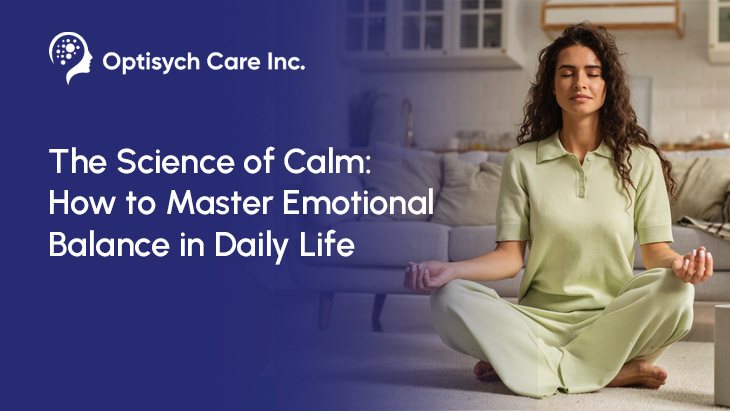
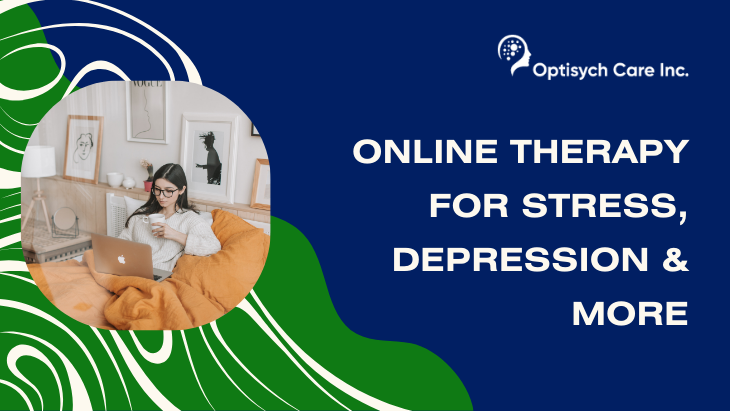
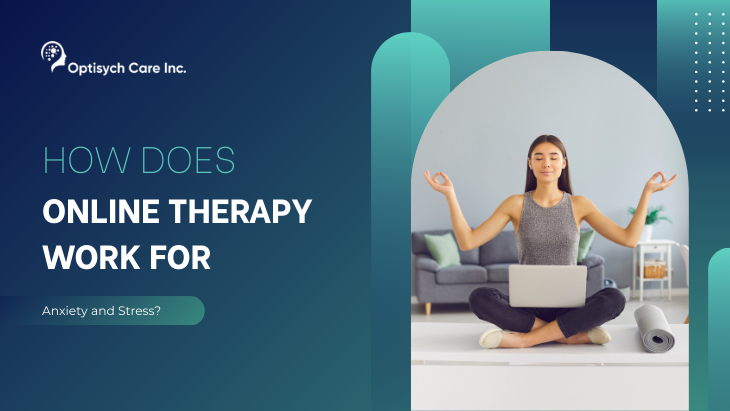
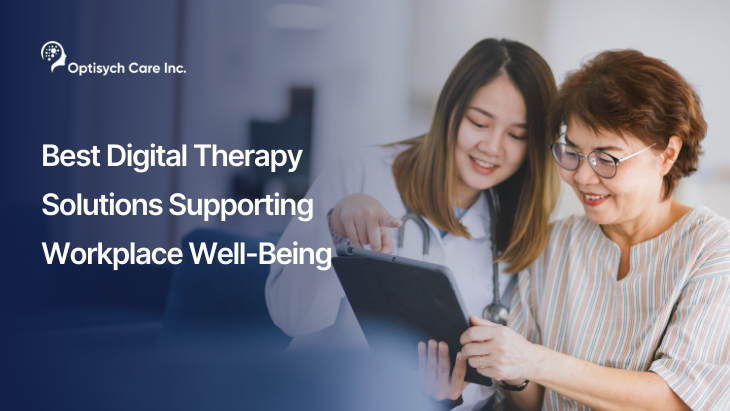
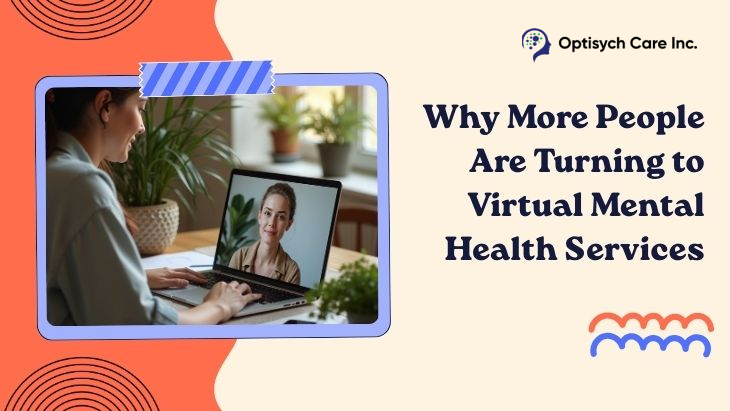

Leave a reply